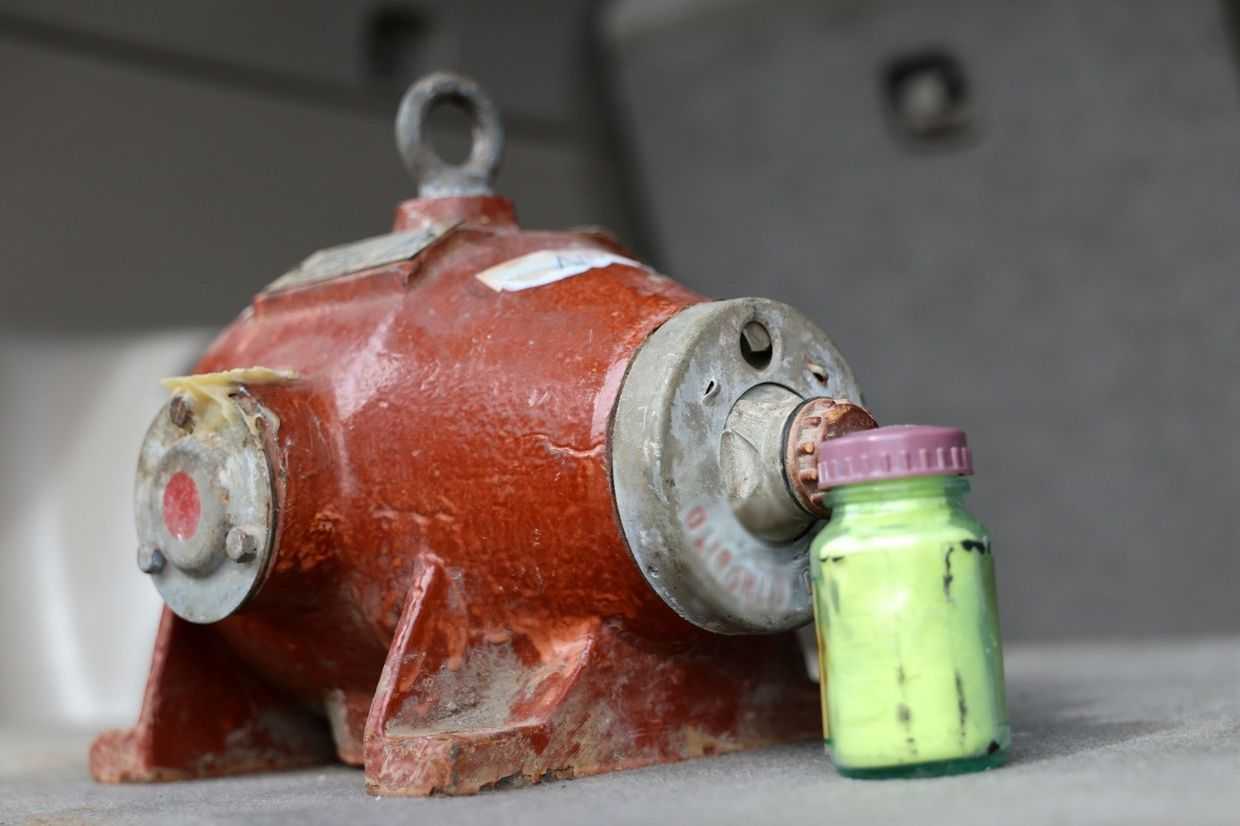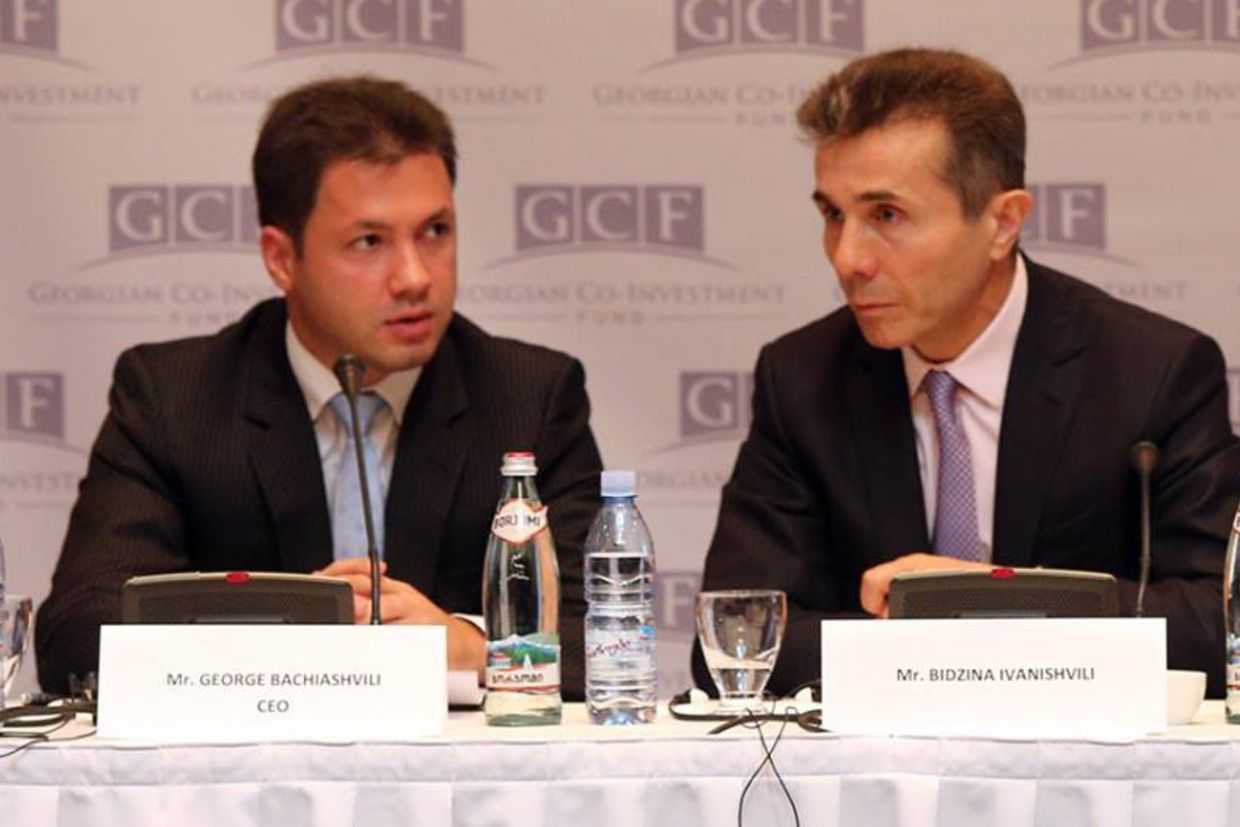
Controversy ensued in the Georgian parliament on Tuesday after a resolution passed in support of Ukraine failed to mention Russian involvement in the ongoing crisis.
As international fears escalate over Russia’s possible military invasion of Ukraine, Georgian lawmakers failed to agree on a cross-party resolution to support Ukraine, with the version adopted being boycotted by most opposition parties.
Despite references to a ‘possible military escalation in Ukraine’, and support for Ukraine and other countries’ right to join NATO, Georgian Dream MPs stopped short of naming the obvious source of the threat to Ukraine’s ‘sovereignty and territorial integrity’, the Russian Federation.
A build-up of over 100,000 Russian troops near Ukraine’s borders in recent months, accompanied by Russian demands that Ukraine be barred from joining NATO, have escalated into one of the largest security crises in Europe in decades.
In the adopted resolution, the Georgian Parliament insisted that NATO membership was the ‘sovereign right of any state and any attempt to curtail this right with the use of military or political instruments is categorically unacceptable’.
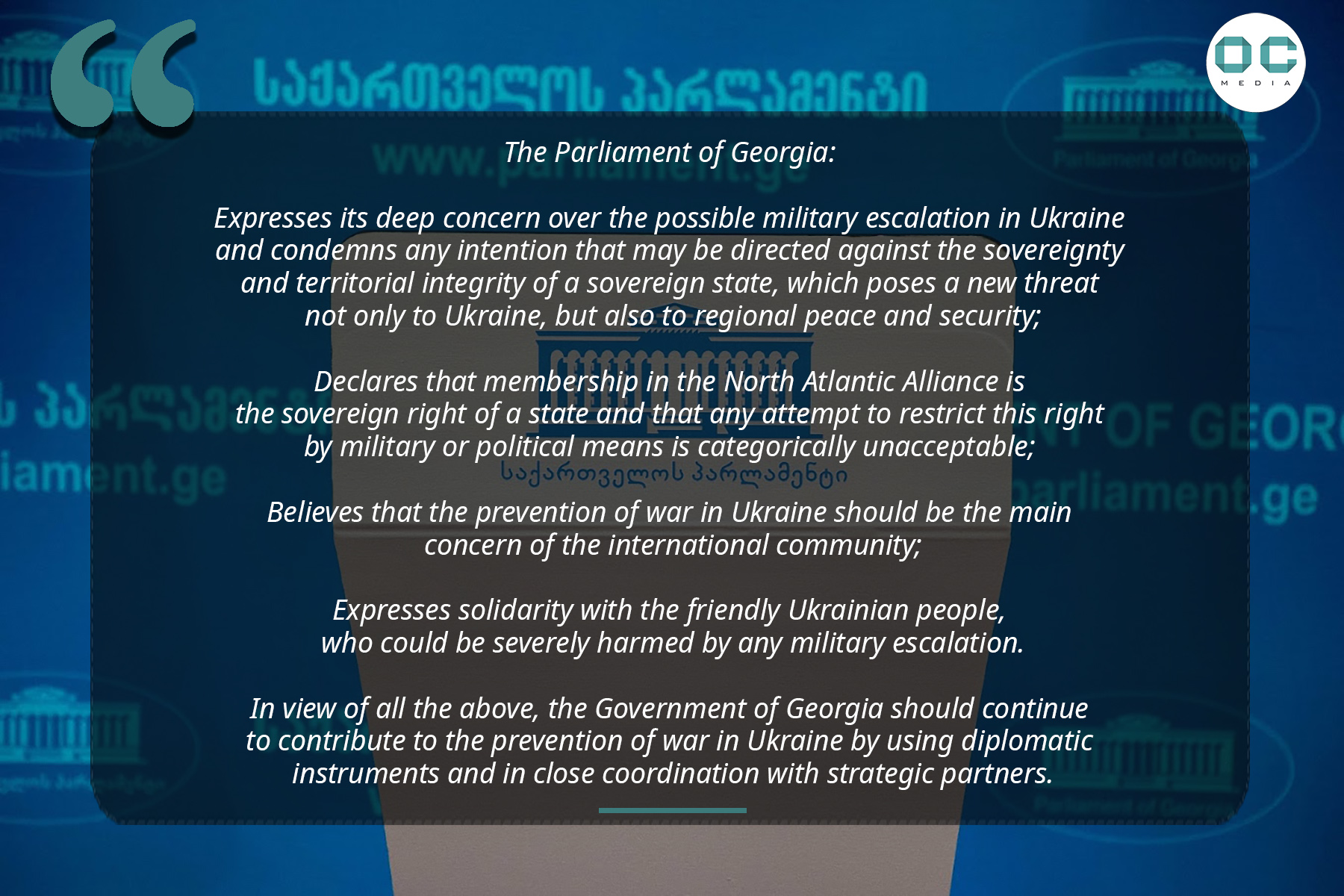
Opposition parties including the United National Movement (UNM), which ended their boycott of parliament on Tuesday, reacted with anger at the omission of Russia from the resolution.
Georgian Dream’s parliamentary leader, Mamuka Mdinaradze, described the language of the declaration as ‘free from populist and provocative rhetoric’.
In March and September 2014, during Russia’s annexation of Crimea and in the aftermath of the beginning of the war in the Donbas, the Georgian Parliament adopted two resolutions in support of Ukraine, berating the Russian Federation for their role in both.
Last week, opposition parties drafted a separate declaration collectively signing the document outside parliament, and publishing it online for the public to sign.
The opposition declaration expressed ‘grave concern over Russia’s military escalation and [condemned] its threats on the use of force against Ukraine’s sovereignty and territorial integrity.’
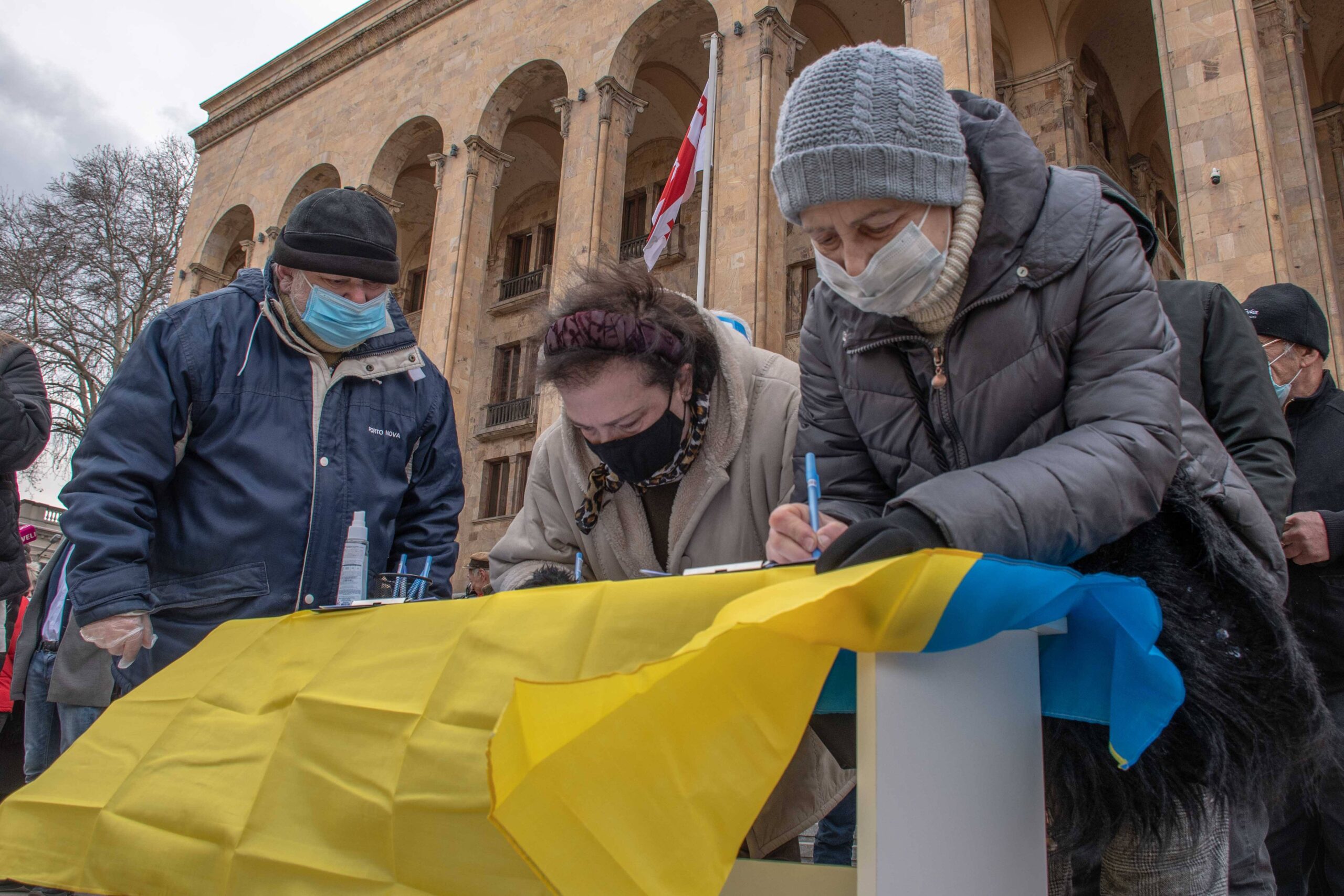
Pressure on the government over its lack of support to Kyiv mounted last week, following which the Foreign Minister, Davit Zalkaliani, expressed support for Ukraine on Twitter on 23 January and spoke by phone with his Ukrainian counterpart the following day.
Georgia considers Ukraine a strategic ally despite strained relations in recent years due to Kyiv’s harbouring of former Georgian President Mikheil Saakashvili.
Saakashvili, who until recently was a fugitive from Georgian justice, was entrusted with leading Ukraine’s National Reform Council in May 2020.
Georgian Dream’s resolution comes at a time when the ruling party has come under consistent pressure by its Western allies for failing to implement institutional reforms they had committed to.
Moscow demands a ‘more balanced policy’ from Georgia
In contrast to the latest resolution adopted by parliament, Georgian authorities were more vocal about Ukraine in December after Russia demanded that NATO scrap its 2008 Bucharest Summit commitment to grant Ukraine and Georgia membership to the bloc in the future.
‘The main challenge of the European and Euro-Atlantic security architecture are the actions of the Russian Federation, which has occupied and annexed the territories of neighbouring sovereign states, neglected the basic principles of international law, and has not fulfilled its own international obligations’, the Georgian Foreign Ministry’s said in a statement on 11 December in response to Russia’s demand.
On 2 December, Georgian Foreign Minister Davit Zalkaliani did not mince words at the OSCE Ministerial Council meeting in Stockholm, urging Russia to cease its inflammatory activity towards Ukraine.
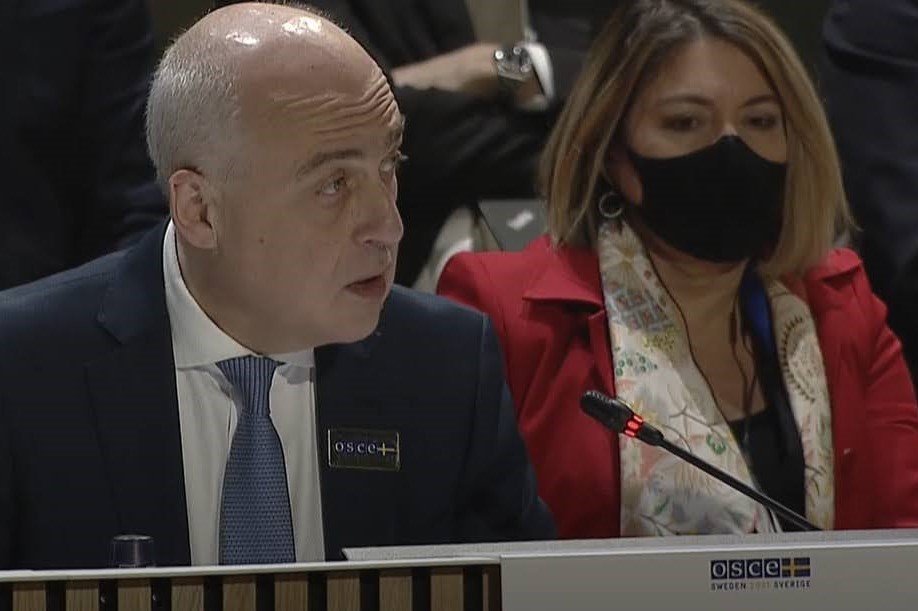
Critics of the Georgian government, however, have underlined that the statements over Ukraine have mostly been made by the Foreign Ministry, while the head of the government, Prime Minister Irakli Gharibashvili, has remained silent on the issue.
This silence continued after Russia’s Foreign Minister, Sergey Lavrov, commented on the possible renewal of Russian-Georgian air travel following his meeting with the US Secretary of State Antony Blinken in Geneva on 21 January.
Following the Geneva meeting, the Russian Foreign Ministry published Lavrov’s answers to questions raised during his post-summit press conference earlier that day, quoting Lavrov as saying that the restoration and normalisation of relations between Georgia and Russia were conditional on the ‘end of Russophobic campaigns’ in Georgia and a ‘more balanced policy with Russia’.
Russian authorities have labelled the anti-government and anti-Kremlin protests that took place in Tbilisi on 20–21 June 2019 and later that summer as ‘Russophobic’.
[Read more on OC Media: Thousands clash with police as protesters try to storm Georgian Parliament]
In July 2019, amid continued street demonstrations in Tbilisi, Russia’s President Vladimir Putin ordered a temporary ban on air travel with Georgia.
The relationship between Georgia and Russia hit its nadir after Tbilisi cut diplomatic ties with the Kremlin following the 2008 military conflict, after which Moscow recognised Abkhazia and South Ossetia as independent nations.
An overwhelming segment of the political spectrum in Georgia sees Russia as an ‘occupying force’ that invaded Georgia in August 2008, contributed to Abkhazia and South Ossetia breaking away from Georgia in the early 1990s, and as a world superpower blocking Georgia’s integration into the EU and NATO.
Popular support among Georgians to join the EU and NATO has remained steady throughout recent years.





